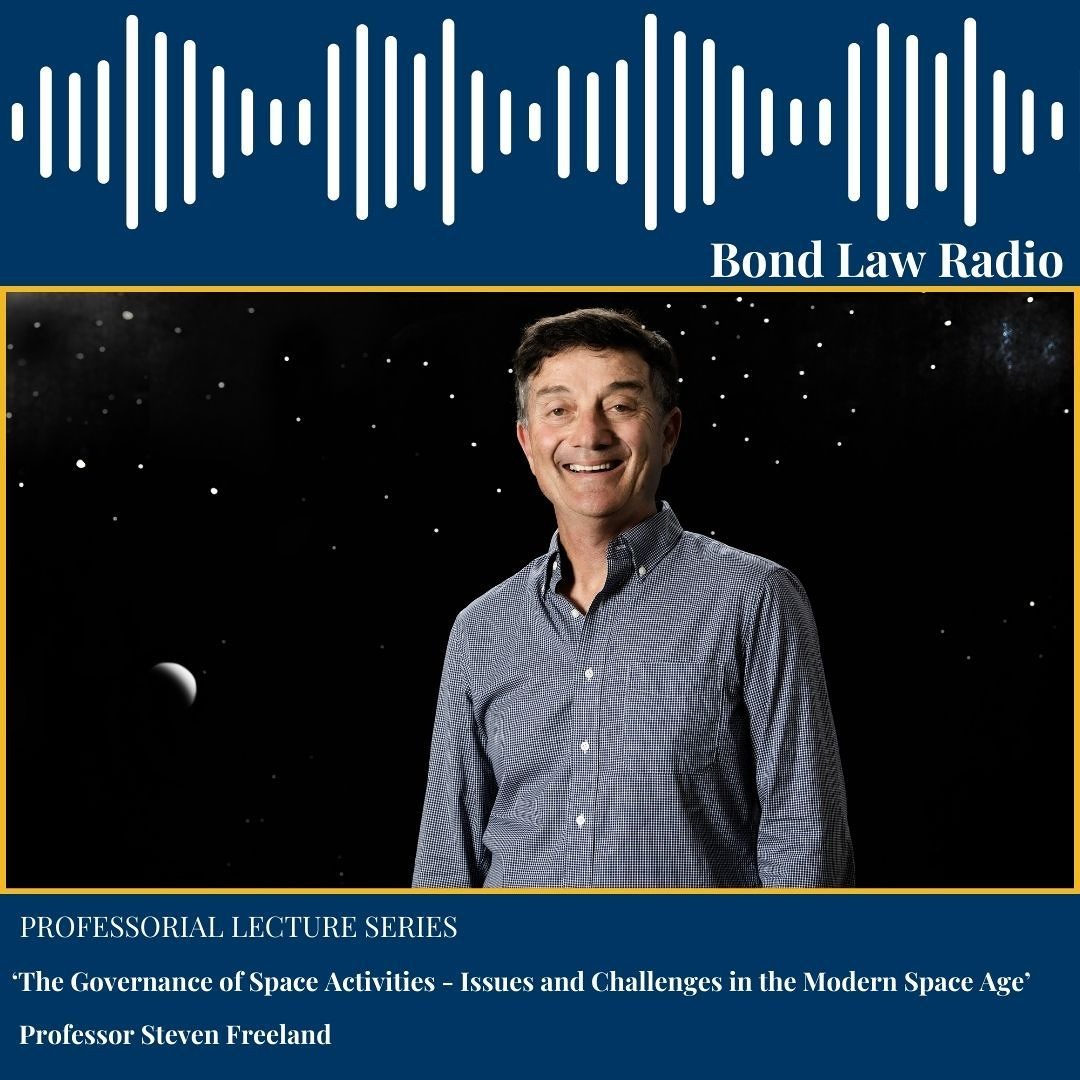published on
 Professor Steven Freeland
‘The Governance of Space Activities - Issues and Challenges in the Modern Space Age’
The development of space-related technology since the dawn of the initial ‘Space Age’ in 1957 has given rise to many new and exciting possibilities. Humankind is now seeking to embark on a broad range of space activities and the utilization of this technology forms an integral element of the global society, such that the world is dependent upon constant and unimpeded ‘access’ to space. This extends to all parts of the globe – major space-faring nations, emerging space-faring nations and even the approximately 100 countries that as yet do not possess any sovereign capability in space and are entirely dependent on the provision of technology by others. Indeed, space technology represents part of the critical infrastructure for all countries on the globe.
Yet, the existing international legal and governance framework, largely developed in a very different era of space activities (1960s–1980s), is now under strain to provide the necessary certainty, standards and protections to appropriately address specific uses of space that have emerged due to recently evolving space technologies. This gives rise to a number of significant challenges for the ongoing global governance of the use and exploration of outer space and, in particular, humankind’s interaction with, and dependency on space-related technology. Important questions arise as to how to address these challenges in a way that will enable humankind to continue to use space for peaceful purposes and to garner significant benefits through such use for the benefit of the global society.
Discussions within the United Nations Committee on the Peaceful Uses of Outer Space (UNCOPUOS) have broadened to attempt to deal with some of these issues, but progress is dictated by the differing interests and perspectives of the expanding number of Member States, and decisions are to be made on a consensus basis. These discussions are complemented by the development of national space law in a growing number (currently 30-40) of countries, where international principles and guidelines can be implemented to regulate activities of the private sector, although this is not necessarily done in a uniform way.
This Professorial Lecture will highlight some of the major challenges that arise in the modern Space Age and will outline important factors to be considered in developing appropriate legal, regulatory and policy frameworks for future space activities, so as best to serve the interests of current and future generations.
About Professor Steven Freeland
Professor Steven Freeland (PhD, LLM, LLB, BCom) is Emeritus Professor of International Law at Western Sydney University, where he was previously the Dean of the School of Law, and Professorial Fellow at Bond University. He also holds Visiting or Adjunct positions at various other Universities/Institutes in Copenhagen, Vienna, Toulouse, Hong Kong, Montreal, Kuala Lumpur, Vancouver, Mumbai and London.
Professor Steven Freeland
‘The Governance of Space Activities - Issues and Challenges in the Modern Space Age’
The development of space-related technology since the dawn of the initial ‘Space Age’ in 1957 has given rise to many new and exciting possibilities. Humankind is now seeking to embark on a broad range of space activities and the utilization of this technology forms an integral element of the global society, such that the world is dependent upon constant and unimpeded ‘access’ to space. This extends to all parts of the globe – major space-faring nations, emerging space-faring nations and even the approximately 100 countries that as yet do not possess any sovereign capability in space and are entirely dependent on the provision of technology by others. Indeed, space technology represents part of the critical infrastructure for all countries on the globe.
Yet, the existing international legal and governance framework, largely developed in a very different era of space activities (1960s–1980s), is now under strain to provide the necessary certainty, standards and protections to appropriately address specific uses of space that have emerged due to recently evolving space technologies. This gives rise to a number of significant challenges for the ongoing global governance of the use and exploration of outer space and, in particular, humankind’s interaction with, and dependency on space-related technology. Important questions arise as to how to address these challenges in a way that will enable humankind to continue to use space for peaceful purposes and to garner significant benefits through such use for the benefit of the global society.
Discussions within the United Nations Committee on the Peaceful Uses of Outer Space (UNCOPUOS) have broadened to attempt to deal with some of these issues, but progress is dictated by the differing interests and perspectives of the expanding number of Member States, and decisions are to be made on a consensus basis. These discussions are complemented by the development of national space law in a growing number (currently 30-40) of countries, where international principles and guidelines can be implemented to regulate activities of the private sector, although this is not necessarily done in a uniform way.
This Professorial Lecture will highlight some of the major challenges that arise in the modern Space Age and will outline important factors to be considered in developing appropriate legal, regulatory and policy frameworks for future space activities, so as best to serve the interests of current and future generations.
About Professor Steven Freeland
Professor Steven Freeland (PhD, LLM, LLB, BCom) is Emeritus Professor of International Law at Western Sydney University, where he was previously the Dean of the School of Law, and Professorial Fellow at Bond University. He also holds Visiting or Adjunct positions at various other Universities/Institutes in Copenhagen, Vienna, Toulouse, Hong Kong, Montreal, Kuala Lumpur, Vancouver, Mumbai and London.
- Genre
- Learning